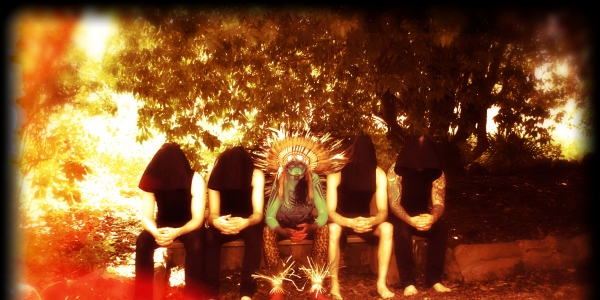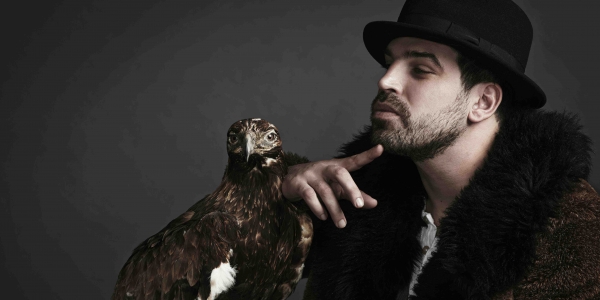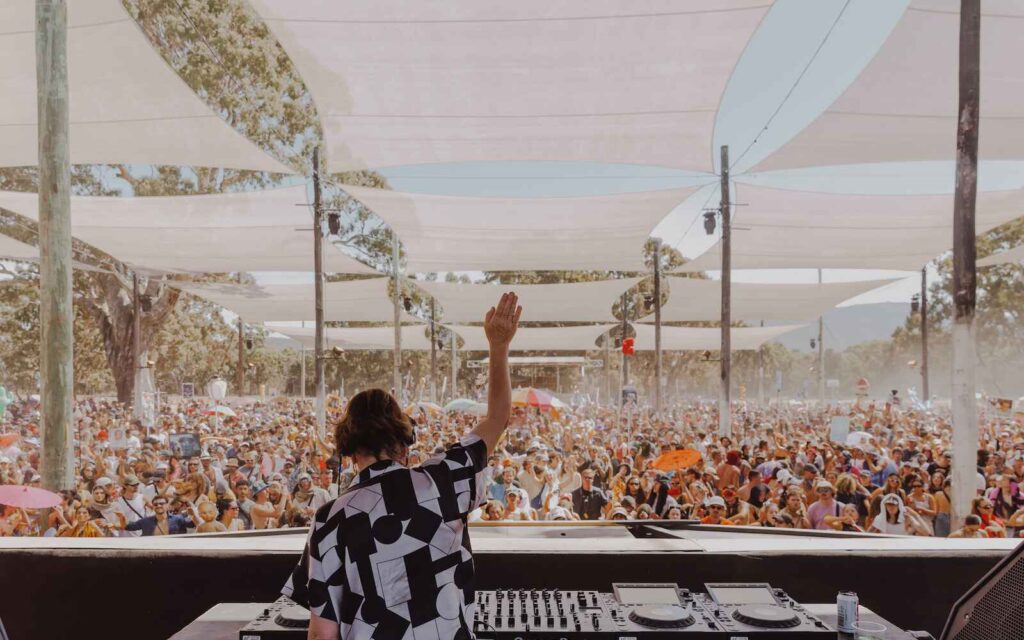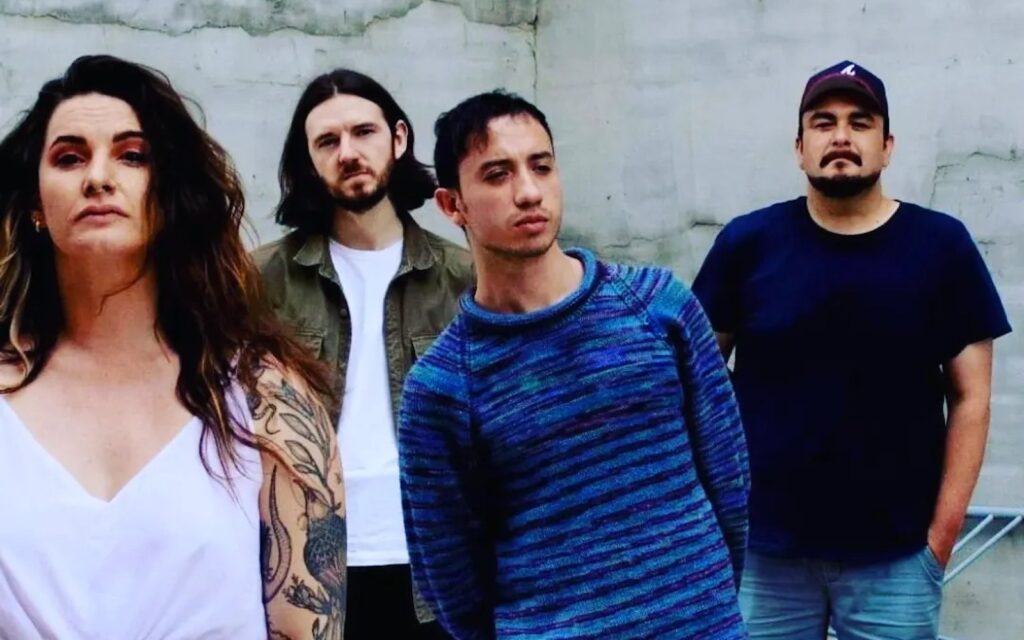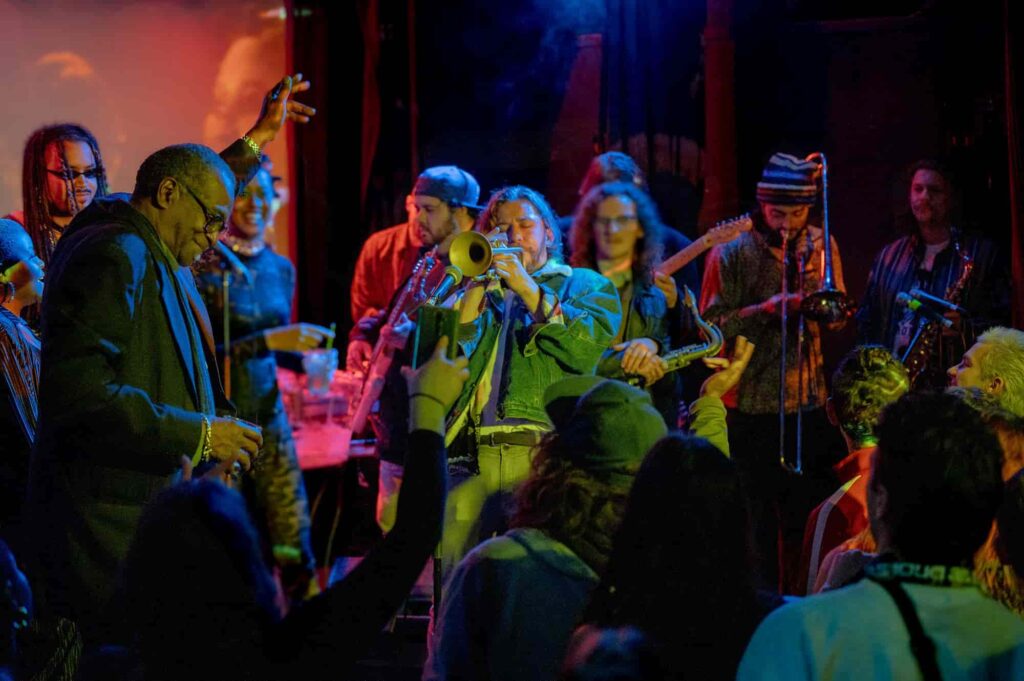“Those three EPs combine to make the album with an extra full track and a few instrumental tracks as well,” explains co-founder Michael. “They’ve been remixed and remastered as well.” This was the idea all along, and if you look at the artwork for the three EPs you’ll see hints as to the material’s ultimate destiny. “The artwork from the three EPs combine,” Michael explains. “If you put them together they make an image which is a pinecone but the top of the pinecone is like the top of a grenade. The idea was that the pinecone represents the pineal gland inside the head, as in a connection with everything.” Many religions and philosophers attach particular importance to this little pinecone-shaped gland deep within the brain, linking it to metaphysical, mystical and occult functions and even being described by Rene Descartes as “the principal seat of the soul.” In the case of the Co-Ordination artwork, the pineal gland and grenade are linked in the symbolism of an awakening of consciousness, although it seems like the more immediate effects of a grenade also fit in there somewhere.
“These three EPs were musically the beginning of showcasing our new line-up,” Michael explains. “We used to be a four-piece but now we’re a five-piece. What we wanted to do was highlight and draw on the fact that we now have five members with varying tastes and influences. We also wanted to musically try to represent and pay respect to three culturally significant places on the planet that we thought showed a respect in some way or another: the Temple of Kali in India, Uluru in Australia and Chichen Itza in Peru.” Once those geographical areas were locked down, the band decided how many tracks were needed for each EP and where the songs would go lyrically. “The lyrics are about the suffering that happens, maybe from their perspective or maybe from our perspective of what’s happening. Recognition of their struggles, would be a way of describing it. Also the music would have to have elements that are based on those styles and genres.”
Voltera is unwaveringly passionate about equal rights and the anti-capitalist movement, and unlike many who seem to think it’s enough to just ‘raise awareness’ via a Facebook click, they put their money where their mouth is – or more accurately, where the need is. “All the money we raise goes to Survival International, who try to defend native tribes and their ways of living,” Michael says, citing the example of native tribes who are uncovered by the destruction of the Amazon: “They’re primitive in their ways compared to us, but that doesn’t make them any less important. It may even be a better way to live. So we try to show that in these old tribes and old ways of living there are a lot of things we should be learning from them. We could lose a lot of the cultural ideas and ways of life, and these are things that we may one day need to look upon for our own survival. One of the things that really annoys us is, a lot of large, successful bands will make a career out of singing about the suffering of Ethiopians or all these things that have happened in the past. And I’m not saying it doesn’t happen, but you don’t see that money going back to them. It doesn’t make you any better just by singing about it. Just because you’re an artist and art is supposed to convey one thing or another… just singing about it is almost leading consumers into a false sense of charity. That was something that really, really frustrated us, so all the money we spend on the band, we don’t take back: anything the band makes goes to Survival International. We’re trying to highlight an issue and also set an example by trying to give that money back.”
BY PETER HODGSON
